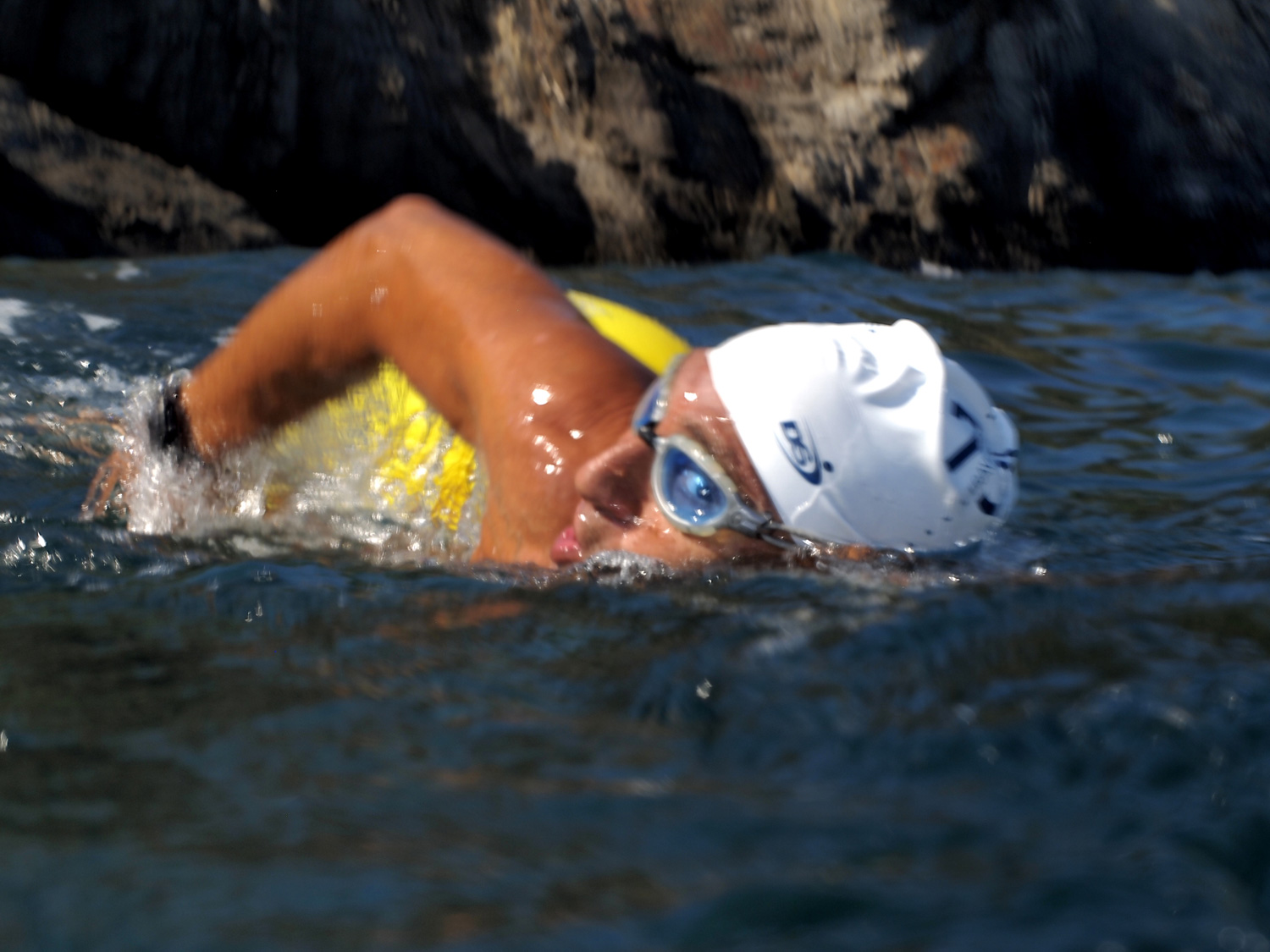Swimming
Swimming indoors or outdoors is one of the best water activities to suit all age groups and most (but not all) levels of physical fitness
It is also considered to be low risk and not stressful. Whether part of a regular training programme or a leisure activity, swimming is beneficial to our health and well-being.
Scientific evidence of the positive effects of swimming is based on numerous studies and articles on the relationship between swimming and human health and wellbeing, and is summarised here. However, the majority of these studies only focus on indoor swimming, and very few have analysed the effects of swimming outdoors in the sea. Therefore, further research is needed on the ways in which open water swimming in sea waters affects both physical and mental health and well-being.

This overview summarizes evidence of the benefits of swimming and water exercise on human health and well-being, and more specifically the effects of open water swimming on physical and mental health. The conclusions drawn are based on published studies and the personal experience of professional, experienced open water swimming instructors in response to an open-ended questionnaire.
A significant number of studies confirm the benefits of swimming for physical and mental health and well-being. An aquatic environment makes swimming and water exercise very accessible to any age group, and almost any type of medical condition, as it is not weight-bearing and any possible risk of injury is kept to a minimum. However, very few of these studies analyse the effects of open water sea swimming and the effects of the environment of the sea itself on human health and well-being, and further investigation is needed to gain deeper insights.
Mental health
The analysis shows that swimming and water exercise can be beneficial for our health and well-being as it helps reduce symptoms of tension and anxiety caused by everyday stress, and symptoms of mental illnesses such as depression. The qualities of water act like a tonic on the nervous system, and swimming soothes the mind, reduces anxiety, and relaxes the body. As a socially and gender inclusive sport, swimming offers a good opportunity to make social contacts founded on, and promoting, a healthy lifestyle. It improves autistic children’s ability to adapt, and facilitates language development and self-awareness. It also provides an appropriate setting for early educational intervention. Non-scientific studies suggest that open water swimming can be very beneficial and helpful for people in recovery form drug and alcohol addiction. However, studies so far are only based on the personal experiences of people who have had addictions or mental illness. Therefore, further medical research on open water swimming is urgently needed in order to find scientific proof of its benefits.
Results of interviews conducted with local professional swimming instructors working in the sea waters of the Cap de Creus Natural Park support the idea that swimming in the sea is very beneficial for mental health problems. Swimming fosters a strong sense of freedom, brings you into contact with nature and yourself, and it also improves concentration, coordination, and the ability to face fear and be alone. It gives a sense of peace, weightlessness, flow, revitalization, awareness and relaxation, and lowers physical barriers in cases of physical disabilities. Having to face the power of nature brings a feeling of self-confidence and sense of belonging to a special community.
Physical health
Swimming is one of the most recommended sports for practically all levels of physical fitness. There is evidence that exercise in water, as opposed to land-based exercises, has a positive outcome for people with cardiovascular disease, especially respiratory muscle strength and pulmonary function in healthy individuals. It also has therapeutic effects such as improving lung function and cardiorespiratory fitness in cases of asthma and COPD. It improves a wide range of musculoskeletal conditions, relieves pain, and reduces abdomen pain in pregnant women. Water exercise improves balance in the elderly and people with neurological and neurodegenerative conditions. It also helps strengthen bones in cases of postmenopausal osteoporosis. Swimming exercises improve muscular strength and build stamina, flexibility, and cardiovascular endurance, as well as helping maintain a healthy body weight by lowering incidences of obesity. Some researchers suggest that swimming in cold sea water reduces obesity and promotes a healthy lifestyle, and there is a hypothesis that in cases of surgical treatment, swimming in cold water may enhance postoperative recovery and reduce pre-operative complications.
The Cap de Creus swimming instructors interviewed observe that swimming in the sea generally improves aerobic strength, coordination and stamina. It also enables a complete body work out with minimum physical stress on muscles. The majority of instructors notice a range of improvements in swimmers: increased muscle strength and endurance, better lung capacity, better regulated body weight, improved mobility, muscle development, better body posture and improved cardiovascular function. The interviewees verify an overall improvement in cases of swimmers with missing limbs, or limited mobility, and confirm it is beneficial for both post-traumatic stress disorder and overcoming the side effects of chemotherapy.
However, to date, very few scientific studies supporting these observations have been undertaken, and research on the effects of sea swimming on people’s health is lacking. This indicates a need to understand the various perceptions that exist among swimmers. Even though this report is primarily based on scientific studies and trusted sources, it lacks data. Therefore, further medical investigation needs to be carried out in order to observe the full impact of swimming at sea, and determine what specific ways people can benefit from it.


















